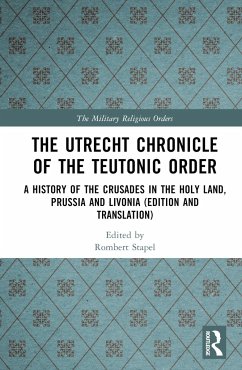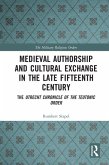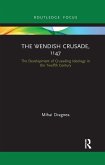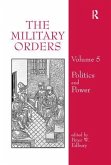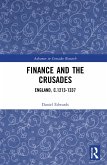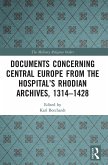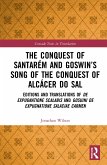The Utrecht Chronicle of the Teutonic Order ('Croniken van der Duytscher Oirden') is a late-fifteenth-century Middle Dutch text that strongly influenced early modern historiography in north-eastern Europe. In German scholarship the text is commonly known as the Jüngere Hochmeisterchronik ('Younger Chronicle of the Grand Masters') and it offers a rare insight into the self-image of members of the military orders at that time. The chronicle describes the history of the Teutonic Order from its supposed biblical origins in the Holy Land to the order's involvement in the Baltic crusades, to which a history of the local Utrecht bailiwick is added. Interwoven are summaries of papal and imperial privileges and indulgences, creating a mixture between the genres of crusading literature, gesta, and cartulary chronicles.
This book offers a diplomatic edition and parallel English translation of the recently rediscovered 'author's copy' (Vienna, Deutschordenszentralarchiv, Hs. 392),written in direct cooperation with the original author. It is the first complete edition of the Utrecht Chronicle and includes several passages that have never been edited. The English translation is the first translation into a modern language, introducing new audiences who are not proficient in Middle Dutch to the chronicle's content.
The book targets students and scholars of the crusades and military orders, as well as audiences interested in Baltic history, medieval chronicles, and Middle Dutch literature more broadly. It accompanies a recent study of the chronicle's cultural context, wide range of sources, and its authorship, published in the same series in 2021.
This book offers a diplomatic edition and parallel English translation of the recently rediscovered 'author's copy' (Vienna, Deutschordenszentralarchiv, Hs. 392),written in direct cooperation with the original author. It is the first complete edition of the Utrecht Chronicle and includes several passages that have never been edited. The English translation is the first translation into a modern language, introducing new audiences who are not proficient in Middle Dutch to the chronicle's content.
The book targets students and scholars of the crusades and military orders, as well as audiences interested in Baltic history, medieval chronicles, and Middle Dutch literature more broadly. It accompanies a recent study of the chronicle's cultural context, wide range of sources, and its authorship, published in the same series in 2021.

